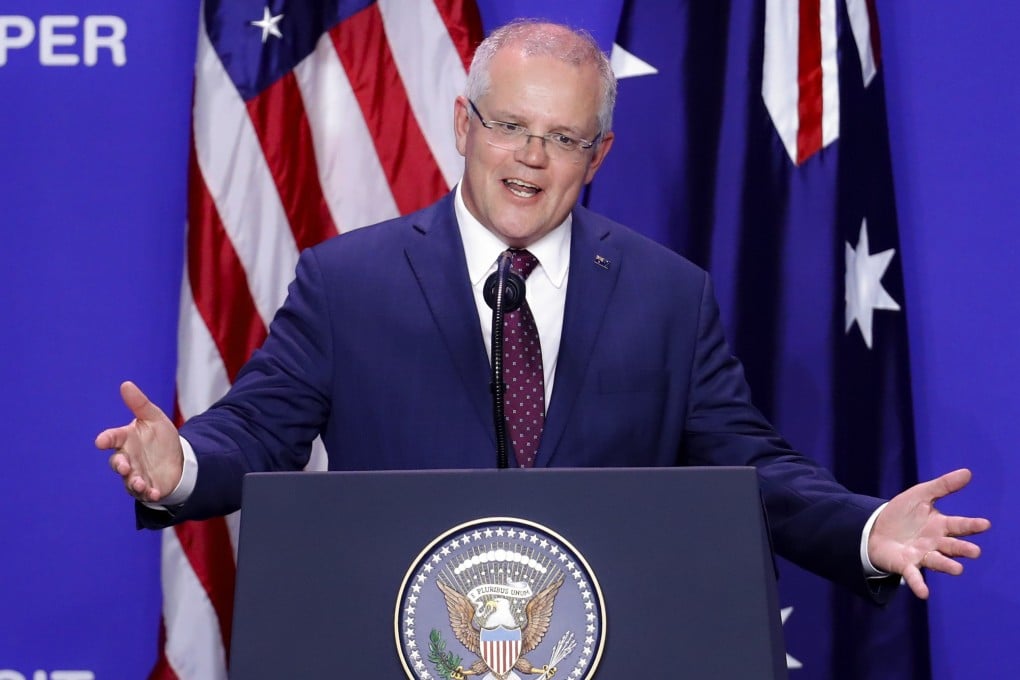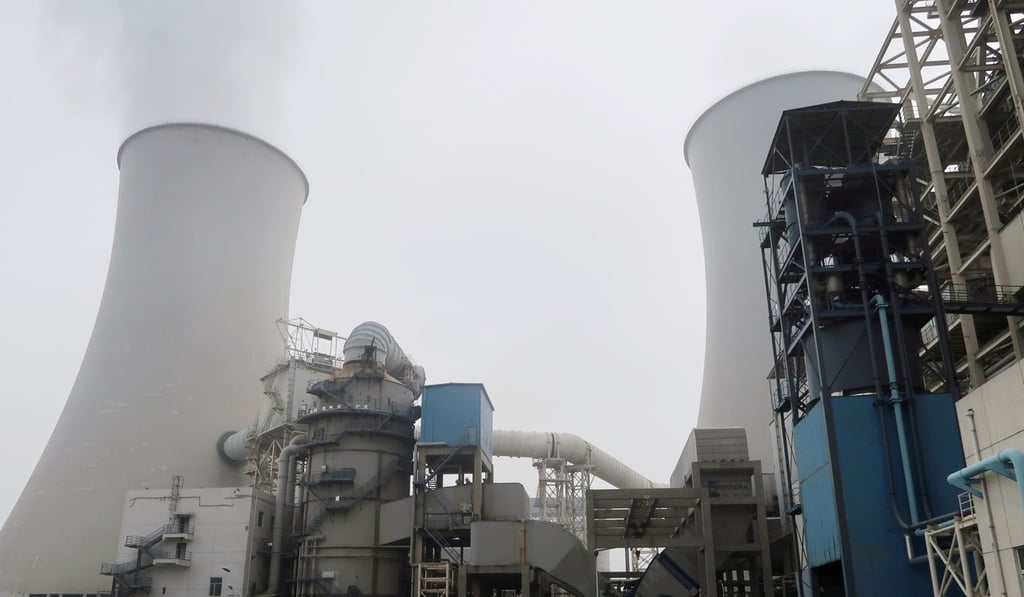Australian PM Scott Morrison warns global trade rules must be reshaped to account for China’s rapid growth
- Referring to China as a ‘newly developed economy’ is at odds with Beijing’s self-declared status as a developing economy but in line with the campaign led by the US
- Morrison’s comments also indicate Australia has shifted its policy on global responsibility for combating the climate emergency, urging China to do more to reduce emissions

Global trade rules are “no longer fit for purpose” and must be changed to accommodate China’s new status as a developed economy, Australian Prime Minister Scott Morrison said in a major foreign policy speech in the United States.
The global community had engaged with China to help it grow but now must demand the world’s second-largest economy bring more transparency to its trade relationships and take a greater share of the responsibility for addressing climate change, Morrison said.
“The world’s global institutions must adjust their settings for China, in recognition of this new status,” said Morrison in a speech to the Chicago Council on Global Affairs, referring to China as a “newly developed economy”.
“That means more will be expected of course, as has always been the case for nations like the United States who’ve always had this standing,” Morrison said.
Global trade rules were “no longer fit for purpose” and in some cases were “designed for a completely different economy in another era, one that simply doesn’t exist any more”, he added.
Referring to China as a newly developed economy is at odds with Beijing’s self-declared status as a developing economy, which affords it concessions such as longer times to implement agreed commitments, according to the World Trade Organisation (WTO).
